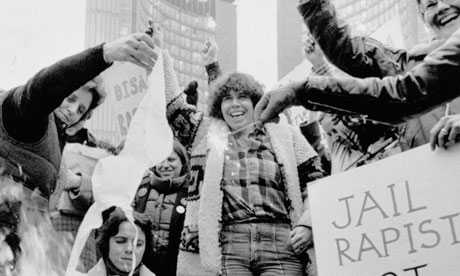 |
||||
|
Feminist Activism
Unveiling the History of Feminist Activism: From Suffrage to IntersectionalityFeminist activism is a powerful and enduring movement that has shaped societies and challenged gender inequalities throughout history. From its roots in the fight for women's suffrage to the contemporary pursuit of intersectional feminism, this article traces the key milestones, prominent figures, and ideological shifts that have marked the history of feminist activism. First Wave Feminism (Late 19th to Early 20th Century): The emergence of feminist activism can be traced back to the late 19th century during the First Wave of feminism. This period primarily focused on women's suffrage, seeking to secure the right to vote for women. Prominent figures such as Susan B. Anthony, Elizabeth Cady Stanton, and Emmeline Pankhurst led the charge through tireless activism, protests, and the formation of suffragist organizations. The culmination of their efforts resulted in significant milestones, including the granting of suffrage rights in several countries, such as New Zealand (1893), the United States (1920), and the United Kingdom (1928). Second Wave Feminism (1960s to 1980s): The Second Wave of feminism emerged during the 1960s and was characterized by a broader scope of issues, aiming to challenge social and cultural norms perpetuating gender inequality. This era saw the rise of influential feminist thinkers and activists such as Betty Friedan, Gloria Steinem, Audre Lorde, and bell hooks. The movement tackled issues such as reproductive rights, workplace discrimination, domestic violence, and sexual liberation. Key victories during this period include the landmark Supreme Court decision in Roe v. Wade (1973), which legalized abortion in the United States, and the establishment of women's studies programs in universities. Third Wave Feminism (1990s to Present): The Third Wave of feminism emerged in the 1990s, characterized by a more inclusive approach that sought to address the intersecting oppressions faced by women, including race, class, sexuality, and ability. Intersectionality became a central concept, highlighting the need to acknowledge and challenge multiple forms of oppression. Prominent figures such as Kimberlé Crenshaw, Judith Butler, and Chimamanda Ngozi Adichie contributed to the evolution of feminist theory and activism during this period. Third Wave feminism focused on issues such as body positivity, LGBTQ+ rights, reproductive justice, and the empowerment of marginalized women. Online platforms and social media played a significant role in amplifying feminist voices and facilitating global activism. Global Feminism and Intersectionality: Feminist activism has extended beyond Western contexts, gaining momentum in various regions globally. Women from diverse backgrounds have played crucial roles in advocating for gender equality and challenging oppressive systems in their respective societies. Activists like Malala Yousafzai, Tarana Burke, and Wangari Maathai have brought attention to issues such as women's education, sexual violence, and environmental justice. The concept of global feminism recognizes the interconnectedness of women's struggles worldwide and emphasizes solidarity and collaboration across borders. Ongoing Challenges and Future Directions: While significant progress has been made, feminist activism continues to face challenges in its quest for gender equality. Persistent gender-based violence, the gender pay gap, limited political representation, and systemic sexism remain prevalent issues in many parts of the world. However, contemporary feminist movements are actively working to address these challenges. Grassroots initiatives, policy advocacy, and the use of social media platforms have played a vital role in mobilizing support and raising awareness. Conclusion: The history of feminist activism is a testament to the indomitable spirit of women and their allies in the pursuit of equality. From the fight for suffrage to the advent of intersectionality, feminism has continuously evolved to address the changing needs and challenges faced by women. By understanding the past and embracing an inclusive approach, feminist activism has the potential to shape a future where gender equality is realized in all aspects of life.
Feminist ActivistsActivism is the avant garde of what feminism is all about. Activists push people's buttons, take controversial stands and raise awareness by forcing people to talk about women's rights.
Grrl Activist
|
|
|||
|
|
||||
|
|
||||
 |
Health Matters - Historical Feminism - International Feminism - Lesbian Feminism - Male Feminism - Modern Feminism - Musical Feminism Philosophy of Feminism - Postfeminism - Pro-Choice Feminism - Quotes by Feminists - Religion and Feminism - Sports and Feminism |
 |
||
